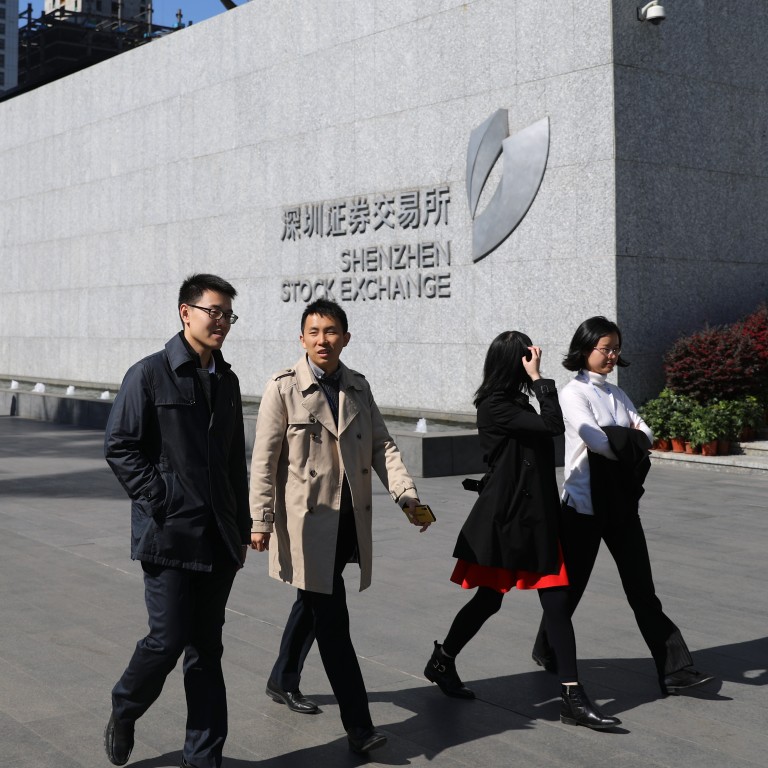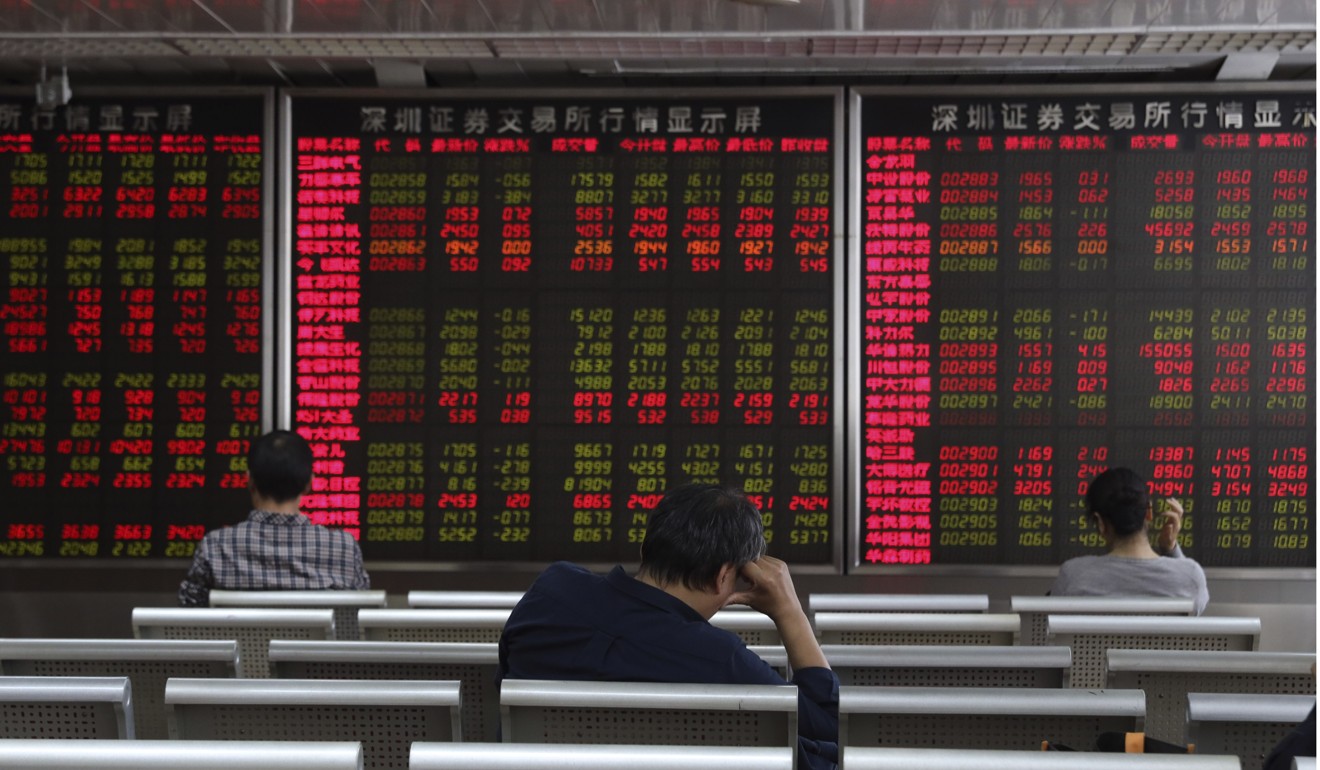
China’s easing of M&A rules put in place after 2015 market crash will boost fundraising, analysts say
- Tougher rules put in place after the market crash led to fundraising shrinking from 833 billion yuan four years ago to 71 billion yuan so far this year
- Move will quicken back-door listing process on Shenzhen and Shanghai stock exchanges
The recent easing of mergers and acquisitions rules for listed companies by China’s markets regulator – put in place after the 2015 market crash – will bolster secondary fundraising and shore up private firms hurt by Beijing’s deleveraging campaign, analysts say.
China Securities Regulatory Commission (CSRC) scrapped profitability requirements in M&A deals involving listed companies, according to a statement on Friday. The revision would also allow additional fundraising for such deals, and lead to a faster back-door listing process on the main boards of Shenzhen and Shanghai stock exchanges.
The watchdog gave the nod to back-door listing of hi-tech companies or firms in industries of strategic importance to the country on the ChiNext board of start-ups in Shenzhen.
back-door listing, also called reverse takeover, is a way for a private company to list itself on a stock market without going through the normal initial public offering process. The private company would usually acquire a shell company, a listed one with little assets or current business activity, and inject its own assets into the shell.

The move underscores a change in regulators’ attitude towards secondary fundraising of listed companies, after they established tighter restructuring regulations in the aftermath of the 2015 crash – which wiped out US$5 trillion in market value – to contain speculation.
“The revision benefits companies as they can enhance their operations by buying and combining quality assets more freely,” analysts at China International Capital Corporation wrote in a report published on Monday.
Chinese companies’ profit warnings indicate it could be the worst third quarter since 2015 as economic growth slows down
“It will also widen the channels of direct financing for private companies in innovative fields, as many private firms face financing hurdles in a tight credit environment under the deleveraging campaign.”
Tougher regulations set up in 2016 helped curb speculation around shell companies, but at the same time limited companies from growing through M&A deals, the analysts led by Wang Hanfeng wrote.
Fundraising by restructuring deals – including back-door listing and M&A – in the A-share market reached a high of 833 billion yuan (US$118 billion) in 2015, but has since fallen to 71 billion yuan so far this year, according to the report.
“The relaxed rules will stimulate the risk appetite of smaller companies and start-ups, as many of them lifted their earnings performance by acquisitions in previous years,” said Yang Delong, chief economist at Shenzhen-based First Seafront Fund Management.
Hazard investing? Here are 10 stocks to buy, if and when Hong Kong protests end, according to Morningstar
The change, first put on the table for public comment in June, is seen as one of the measures by the authorities to boost the A-share market, as it faces pressure from China’s slowest economic growth in almost 30 years in the third quarter and a bruising US-China trade war.
A gauge tracking 26 small-cap companies listed on the ChiNext board that could potentially become shells for back-door listings surged 5.5 per cent on Monday, against a modest fall in the market, according to data provider Xuangubao.com.

